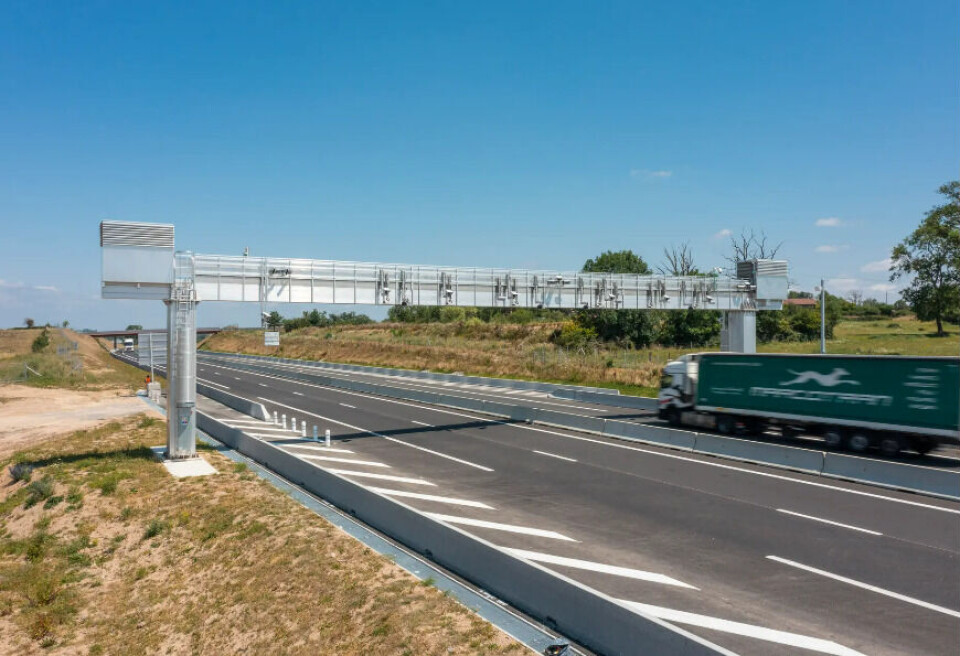-
Travellers risk extra costs under new Eurotunnel ticket rule
Some fare options are less flexible and less forgiving of lateness
-
May will be difficult month for train travel in France, warns minister
Two major train unions are threatening to strike and are ‘not willing to negotiate’, he says
-
Larousse dictionary adds 150 new French words - which ones do you know?
The new words come from trends in sport, nature, leisure, food, medicine, and the rest of the French-speaking world
Drivers ‘tricked into fines’ at France’s first barrier-free motorway
This is the claim of a leading French association, which says the road is a ‘trap’ for drivers

A leading French driving association is to lodge a legal complaint claiming that a new barrier-free motorway péage system - the first to be used in France - amounts to a ‘trap’ for drivers.
‘40 millions d’automobilistes’ says it wants to take a case to court in connection with the new péage (toll) system on the A79 motorway between Sazaret (Allier, Auvergne-Rhône-Alpes) and Digoin (Saône-et-Loire, Bourgogne-Franche-Comté).
The motorway section charges motorway users and uses technology to track who has used the road, but does not have a physical péage in place. Instead, the ‘péage flux libre’ system aims to keep traffic moving, avoid jams, enable drivers to save on petrol, and reduce greenhouse gas emissions that would otherwise accumulate at toll booths.
Drivers can pay in a variety of ways, including via a subscription toll badge fixed onto your vehicle, number plate subscription, via a website within 72 hours and by card or cash at payment stations along the route.
But some drivers say there is not enough information on the road to tell them that they are on a paid-for route nor about how to pay.
General delegate for the association, Pierre Chasseray, told TF1: “Either they roll this out across the whole of France, so that everyone understands it, or don’t do it. You can’t have a motorway that is not like the others because it becomes a trap for drivers.”
Read more: Motorists highlight issues with France’s first free-flow toll motorway
‘Abusive’ system
“It’s frankly abusive,” said Béranger Cavagni, who used the road without having been aware of the need to pay, and was later fined €13.80 for lack of payment.
“I didn’t see any information about it when I passed by. Same story on the way back; no information. It’s so easy for them to give people fines two weeks later, for double the amount they would have paid.”
This is not the first time that the motorway has attracted criticism from users or a consumer group.
Consumer magazine UFC-Que Choisir reported in March that some drivers felt the payment systems were not explained properly, while others said that they were unable to pay online and had to call customer services.
One woman, Sylvie, said: “There is very little information [about how to pay] along the road during your journey. You have to be very alert to understand that you have to pay later.”
Another user, Christian, said he was disappointed that he was not given enough notice to be able to avoid the paying section of the road by using another route; while Geneviève even found that she was unable to pay her 30-cent payment due for use of the road.
She said: “[I was notified] that I had committed an infraction that could be fined by up to €90.” But, when she went online to pay, she found the website did not work. She then had to call the customer services line and later sent a cheque.
Those who do not pay risk a €90 fine.
In its defence, motorway management company APRR said that it was doing “everything it can” to alert users to the new system.
It said: “The signposting and available information is strictly defined by the regulator, so the state. We can’t just do what we want.”
The system is already used in other countries, including in the US, Spain, Austria, Brazil, Chile, Colombia, and India. There are plans to introduce the system on other motorways in France in the next few years, including the A13-A14 (planned for 2024) and the A69 (2025).
Read also
Fine for not paying at toll gates in France rises to €375
























